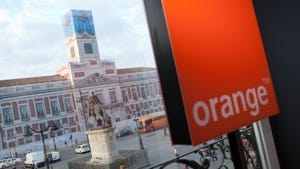BT starts making noise about convergence with Halo launchBT starts making noise about convergence with Halo launch
Convergence is a proven business model and now the slumbering giant of the UK telco market is starting to head in the right direction.
October 9, 2019

Convergence is a proven business model and now the slumbering giant of the UK telco market is starting to head in the right direction.
While there is already a convergence product available to customers, to date there has been questionable success. Unlike continental Europe, convergence has not really gathered steam in the UK, though BT is attempting to shift the status quo.
“I feel this is a once in a lifetime shift for BT in the UK,” CEO Philip Jansen said. “BT Plus has been a huge success, but this is a modest, first convergence product.”
The new convergence product will be known as Halo, available to both consumer and enterprise customers. The product will include the fastest available broadband service, unlimited mobile data, with the option to upgrade to 5G, a team of customer service agents which do home visits and access to the wifi presence throughout the country. Prices have not been announced just yet.
While this is a promising move forward, there are still challenges which need to be addressed.
Firstly, does the UK consumer understand the concept or benefits of convergence. And secondly, can a convergence product be successful when you have two distinct brands?
Starting with the concept of convergence, perhaps there is a misunderstanding about the definition and benefits because the telcos have not made enough, or the right, noises about it. Up until recently, BT was the only UK telco which had the assets to create a genuine convergent product portfolio. There was of course a significant advertising campaign behind BT Plus, the first iteration of convergence, though arguably this had limited success.
Before too long, more details will be unveiled regarding a brand advertising campaign. BT will have to be smart to communicate the benefits very clearly.
Looking at the BT business, this is where the team has a big decision to make; can convergence work when you do not have a single brand? EE is king of mobile, but questionable on broadband, while BT is the broadband leader with a suspect mobile offering. More has to be done to marry the two brands together.
An interesting announcement which has been made which will help to address this challenge concerns the high-street. The BT branding and customer service team will have a much more prominent presence in every high-street store moving forward. This will help tie the two brands together in the minds of the consumer, though you still have to question whether convergence can be successful with two distinct brands.
“A decision need to be taken with BT’s multi-brand approach in the consumer segment,” Paolo Pescatore of PP Foresight commented. “Moving towards one brand will reduce costs, avoid consumer confusion and cannibalization of revenue.”
Quite frankly, it is surprising BT has not addressed this challenge already. BT bought EE in 2016, it should have been sorted. Currently BT is funding two websites, two brand advertising campaigns and two customer service operations. It should be viewed as a waste of money.
Ultimately, this is a good move forward by BT. There is still a sense more could be done and said, though it is heading in the right direction.
BT has an opportunity few others in the UK can compete with. It has the widest and best-performing mobile network, a dominant broadband network and a wifi presence with more than five million points of presence. Over the next couple of months, the TV service will be re-launched adding another element to the mix.
Should the team be able to create a product which is attractively priced, supported by a brand marketing campaign which clearly communicates the benefits, BT should be untouchable in the UK’s connectivity segment.
About the Author
You May Also Like










.png?width=300&auto=webp&quality=80&disable=upscale)


_1.jpg?width=300&auto=webp&quality=80&disable=upscale)